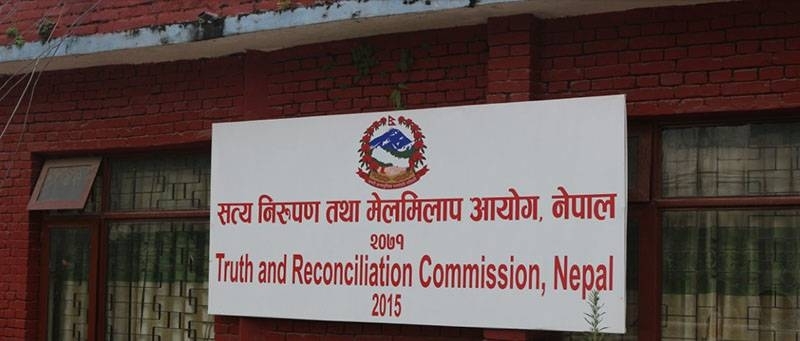
KATHMANDU, AUGUST 10
Three UN special rapporteurs and a Working Group have pointed out problems in the latest Truth and Reconciliation Act (Amendment) bill and requested Nepal government to furnish a reply.
According to a copy of the document the special rapporteurs sent to the government, which Advocacy Group provided to this daily, the special rapporteurs wrote that the bill was inconsistent with Nepal's obligation to investigate human rights violations committed during the 1996-2006 internal armed conflict.
The special rapporteurs wrote: The bill introduces a two-pronged categorisation of violations of human rights to be considered by the transitional justice mechanisms, which appears to be inconsistent with the classification of such violations under international standards.
According to Section 2 (4) of the bill, 'human rights violations' comprise the following crimes: murder; sexual violence, physical or psychosocial torture, abduction or hostage taking, unlawful detention, assault, dismembering or making disabled, looting, seizing, vandalising, arson of private or public property, forceful eviction or displacement, and other inhumane acts against human rights and humanitarian law committed against unarmed civilians or communities in a widespread and targeted manner, the special rapporteurs wrote in their letter.
They said Section 2 (5) of the bill listed murder with cruelty or torture or inhuman conduct, rape, enforced disappearance, and inhuman or cruel torture committed against unarmed civilians or communities in a widespread and targeted manner as serious human rights violations, but this list does not encompass all serious human rights violations defined in international law.
They further wrote: According to the bill, crimes that fall under the category of 'human rights violations' can be the subject of amnesty, while crimes falling in the category of 'serious human rights violations' cannot be the subject of amnesty. Serious human rights violations under international law which are listed as 'human rights violations' in the amendment bill would therefore be subjects of amnesty.
The special rapporteurs wrote that Section 15(5) of the bill establishes that 'the Commission shall make a recommendation for amnesty on the basis of the victim's free consent and also considering the harm suffered by the victim as well as the statement made by the perpetrator to the Commission'.
However, the bill does not clarify what happens when victims do not give consent for amnesty or when perpetrators fail to fulfil the aforementioned conditions for granting of amnesty, as there are no legal provisions to prosecute human rights violations which were not amnestied.
This gap in the legislation, the special rapporteurs added, could lead to the non-prosecution of such cases, and therefore to de facto amnesties. The bill does not foresee a recourse for victims to appeal against an amnesty recommendation or decision by the TRC.
The bill states that sentencing will be as per 'existing law'. However, the bill fails to clarify which existing law would be used to prosecute those involved in serious human rights violations in a context where the penal code that came into force in 2018 prevents retroactive applicability of its provisions and includes time limitations for reporting crimes of rape, torture and enforced disappearances. For the crime of rape, time limitation is established at two years for an adult and three years for a minor.
Stating that the transitional mechanisms had received 60,000 complaints, special rapporteurs said that the two-year time to be given to this mechanism to complete the high volume of work wouldn't be enough.
The special rapporteurs expressed further concern that the bill does not include crimes against humanity under the jurisdiction of the TRC or the Special Court and that many violations listed in the bill as 'human rights violations' may indeed amount to crimes against humanity.
This could therefore lead to a grave impunity gap for the most serious crimes committed during the conflict.
They stated in their letter: While we welcome some positive aspects introduced by the bill, such as mandating the TRC to examine the root causes of the conflict and recommending institutional reform, as well as guaranteeing victims' right to reparation and the rights of families of disappeared persons to their relatives' property, we express serious concern that in its current form, the bill prevents the criminal investigation and punishment of human rights violations related to the 1996-2006 internal armed conflict, including certain crimes which constitute serious human rights violations under international law.












